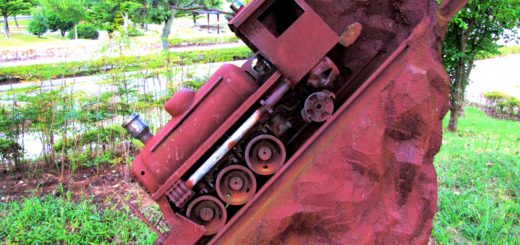On Being an Idiot
A few days ago, I posted an article here as well as at American Thinker about London’s mayor calling for a travel ban against Donald Trump. As a matter of conscience, I began my piece by noting that I am not a Trump fan, to which one AT reader commented, “Yeah, we all know you are an idiot.” Another commenter replied to the first: “My question? (sic) After all that Trump has accomplished, why isn’t Jonescu an adherent?” To which Gentleman Number One answered, “Because he is an imbecile.” Another witty Trumpster accused me of being “a clueless dhimmi tool” — for writing an article in which I state that Britain has been undone by its perverted conception of tolerance regarding Islam. (!)
There were other choice remarks along these lines scattered among the three hundred readers’ comments — though, I am heartened to note, fewer than I had expected, and far fewer than I received when I wrote about Trump before the election. It seems the Trump cult’s online troll division has either (a) been reduced in size or fervor as the mostly establishment-friendly reality of President Trump leaves them somewhat disillusioned, or (b) gotten bored of trotting out the same stock insults incessantly — hamstrung as they are by the knowledge that, whatever their own brain capacities, it would be irreligious of them to use words their idol himself couldn’t use.
To summarize, then: One is not merely to support Trump, but to be “an adherent” — perfect cultist language, and I have written at length about the degree to which I believe what we are witnessing is not a metaphorical or parodic cult but a real, honest to goodness one. Furthermore, anyone who fails to adhere to Trump is an imbecile or worse, which, again, is consistent with the cult sensibility, as it is a judgment that conveniently circumvents any possibility of rational argument, and hence absolves the cultist of the responsibility of offering one. (Case in point: Amid the smattering of vitriol in the aforementioned readers’ comments, I find, “The author writes he is not a fan of Trump. Who is he a fan of Jeb Bush or Kasich?” The critic conveniently cites only the two most obviously establishment-aligned primary candidates as alternatives to Trump, ignoring all others, in order to smear me as establishmentarian by association, as though Trump had no rivals of a more principled nature — or as though not loving any other GOP candidate required one to love Trump, i.e., as though supporting a Republican candidate were an inescapable duty. So who’s the establishmentarian again?)
I’ve frankly grown tired of beating my head against the “big, beautiful wall” that seals off the brains of Trump’s adherents from the oxygen of constructive criticism.
On the other hand, I have endless empathy for those reasonable Americans who, facing the progressive dismantling of their nation, and knowing the electoral system is rigged to prevent a serious constitutionalist from ever being a major party candidate, feel reluctantly supportive of Trump in spite of all the ways they know him to be an inadequate representative of anything they believe in. And I feel something like brotherly love for all those who objected to Trump’s candidacy from the outset, bravely maintained their reason as an amulet against both the Trump cult’s bullying and the Republican establishment’s manipulations throughout the primaries and general election, but now, in light of the onslaught of irrationalism from every quadrant of the left, find themselves clinging to the hope that a few of Trump’s less outrageous policy moves might prove to be a little better (from a conservative point of view) than the nothing they had expected from him.
I suspect many of my regular visitors here in Limbo would fall somewhere within this latter category: not liking Trump, hating the harm he has done and fearing the harm he might do, but nevertheless seeing something pleasing in the Neil Gorsuch Supreme Court nomination, the Paris Climate Agreement withdrawal, and perhaps a few other straws to grasp at along the way.
For a good representative sample of this, I quote from a recent e-mail I received through this site’s Contact page from a reader, Kirk:
I did not vote for Trump (or anyone else) because I did not see a game changer. Given his lack of a political track record, verbal flip flops, and overall nuttiness, I assumed he would simply meld into the establishment.
I still take things day by day, but, I am starting to think I may have been wrong.
What would Trump do that would cause you to reassess?
See how rational a person can sound while expressing some sympathy with Donald Trump? The whole thing turns on whether one is sincerely looking at a politician’s actions with an open mind or merely living in that adolescent fan club world (i.e., cult) in which Trump is a combination of Superman, Dirty Harry, and George Washington. (I almost said “Vladimir Putin” as idol number three, but I restrained myself — see how conciliatory an imbecile can be?)
I liked Kirk’s closing question — What would Trump do that would cause you to reassess? — and took some time to think about it. Here is the reply I sent him:
As for Trump, I completely sympathize with anyone who couldn’t bring himself to vote at all, anyone who voted for one of the extremely inadequate third party tickets as a protest against the GOP’s corruption, and anyone who said he wouldn’t vote but then caved and voted for the R on election day in the face of a Hillary Clinton presidency.
For the most part, I think Trump has benefited (with rational people — there’s no accounting for cultists) from having created such low expectations. Your description — lack of political track record, flip flops, nuttiness — is a strange way to describe a major party’s presidential candidate, but quite accurate, and a view generally held by many conservatives and Constitutionalists as Trump began his term. So what could he do that wouldn’t seem like a pleasant surprise? Gorsuch alone sealed the “pleasant surprise” element for many people, although you’d think conservatives would have learned by now the danger of fawning over a Supreme Court justice who hasn’t made a SCOTUS ruling yet.
As for what would cause me to reassess Trump, to be honest I can’t guess. I suppose I should say “I’ll know it when I see it.” Or to put it another way, I am reassessing him regularly, but I keep coming up a loser.
Even most of the things that seem semi-heartening or semi-relieving about his decisions are benefiting, it seems to me, from the low expectations mentioned above. As you said, you assumed he would meld into the establishment. On the other hand, what was Trump/RyanCare but melding into the establishment? What is “school choice” but the GOP establishment’s model of government-regulated schooling? (Jeb Bush is perhaps the GOP’s most famous advocate of “school choice.”) What was his spending proposal but GOP-style rearranging the deck chairs with a little “tax cut” verbiage thrown in? And that’s leaving aside his continuation of mainstream GOP foreign policy.
His EPA position so far seems fine, but I anticipate his establishmentarian “repeal and replace” mode on the Paris Climate Accord to come along eventually and dash hopes for a real anti-climate fraud revolution. And on terrorism and immigration, his positions, though not stable, have been relatively consistent (and intermittently agreeable) since the beginning. (As long as one understands that his position on immigration and “the wall” was NEVER what his cult believes he was saying.)
At best, I see his presidency so far as a fairly reined-in mainstream GOP administration with hints of bipolar disorder. (I’d almost prefer the bipolar part.) But I’ll concede it hasn’t been as catastrophic as it might have been. (Though the Russian odor is still hanging around, even if conservatives would like to pretend otherwise.)
To conclude, Donald Trump as President has done a few things one might have expected almost any of the major GOP presidential candidates apart from Bush or Kasich to do, along with a few things one might have expected precisely Bush or Kasich to do. He has said some firm words about Islam, but also acted like a flattered prom queen with the Saudis, and declared the Palestinian leadership desirous of peace with Israel. (Not to mention publicly excluding Israel from his own description of the Middle East.) He has appointed some seemingly meritorious cabinet members (in mainstream GOP terms), but also relied heavily on an alt-right kook (Bannon), an alt-left empty suit (Kushner), and an alt-Paris Hilton first daughter (Ivanka).
Which brings us back to Kirk’s polite but honest description of Trump pre-election: lack of a political track record, verbal flip-flops, and overall nuttiness. Too polite by half, I think.
For in fact Trump had a political track record: he was a progressive Democrat — big donor to leftists, pro-abortion, pro-socialized health care, with some deference to big business interests (à la Bill Clinton) — until, in his early sixties, he suddenly shifted into a progressive Republican position, becoming a big donor to Boehner, Rove, and McConnell, and supporter of anti-Tea Party organizations.
He was deserving of more than the standard “flip-flop” label now pinned on every politician. He was an inveterate smear-artist and blowhard prepared to say or do anything to gain an advantage this week, and simply to deny or contradict himself the next week, when the winds of convenience changed.
As for overall nuttiness, well, I’ll leave the categorizations to the psychologists.
The question, then, is: Has any of this assessment become less true since Trump became President of the United States? In other words, has he shown signs of becoming a more honorable, serious, politically principled, and rational man over the past few months?
I’ll leave it to each of you to answer that question for yourselves, in your own minds.


